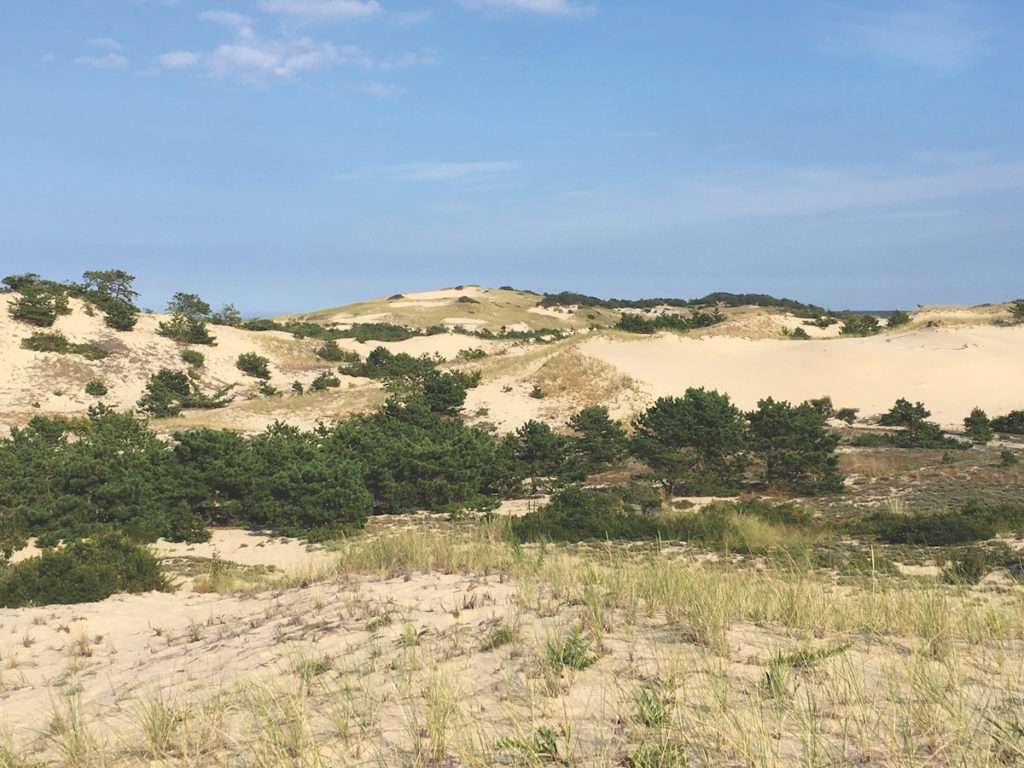
WELLFLEET — On March 4 last year, the Cape Cod National Seashore Advisory Commission hit another roadblock on the road to reauthorization. The acting deputy director of the National Park Service (NPS), Shawn Benge, told a U.S. Senate subcommittee that he did not “see a compelling reason to extend authorization.” Since that hearing, before the Energy and Natural Resources Subcommittee on National Parks, there has been no action on the bill.
For decades, the advisory group had met five or six times a year, and was considered an essential avenue of communication between local towns and the park administration. But the Trump administration put a stop to that. The commission met just once in almost four years, and was then allowed to die via “sunset” legislation.
U.S. Rep. William Keating intends to reintroduce the reauthorization bill in the new Congress, said his press secretary, Lauren McDermott.
Now, with Rep. Deb Haaland of New Mexico nominated by President-Elect Biden for secretary of the interior, and with Congress under Democratic Party control, there is hope for reauthorization, said commission chair Rich Delaney, who is also president and CEO of the Center for Coastal Studies in Provincetown.
Benge’s objection to the reauthorization hinged largely on a provision that gives the commission the right to review industrial and commercial uses of park land — a provision the Trump administration had wanted to eliminate.
Delaney, who has served on the commission in various roles for over 20 years, said that, in the early days of the National Seashore, local communities were concerned that commercial activities in the CCNS might hurt local businesses. He noted that Benge falsely implied that the rules gave the commission veto power over such uses, which it does not have.
Benge also argued that the cost to operate the commission was not a high-priority expense for the department, given other infrastructure needs. But Delaney said $50,000 is “the very top end estimate” for costs related to the volunteer commission’s work. The operating budget of CCNS in 2020 was $7,970,000.
The advisory body was part of the legislation that established the National Seashore in 1961. Since then, it was regularly authorized by Congress for ten-year periods. In a statement before the Senate subcommittee, Delaney called the commission “one of the keys to the successful establishment of the Cape Cod National Seashore.”
The commission’s work came to a halt on Sept. 26, 2018 when a reauthorization bill, introduced by Keating and Sen. Edward Markey, failed in the Republican-controlled Senate. In September 2019, the Mass. Congressional delegation reintroduced the bill, which again passed in the House — with bipartisan support — but fizzled out in the Senate.
CCNS Supt. Brian Carlstrom said the commission provided a regular and defined process to communicate with representatives from the towns, county, and state. Carlstrom said he would welcome reauthorization, “but, it’s up to Congress, ultimately.”
Former CCNS Supt. Maria Burks said that, during her tenure, she found the commission to be “efficient and cost effective, and the benefit provided was priceless.” It was a neutral body, she said, and “a clearing house for debate and discussion,” where people from the communities in and around the Seashore would be genuinely heard, she said.
The issues left unaddressed have been mounting, said Delaney. The six local communities and the NPS need to coordinate on critical public safety issues ranging, he added, from Covid-19 to great white sharks to many infrastructure and facilities projects.
Although he is hopeful the commission will be reauthorized, Delaney said there is still a long way to go. “If and when the advisory commission reconvenes,” he said, “we will have a lot to catch up on, starting with the many deferred maintenance projects that have now been funded.”
“Congressman Keating is hopeful that the Biden administration will better understand the unique nature of the Outer Cape and the role the National Seashore Advisory Commission plays in that community,” McDermott said, “and that the commission meetings will resume swiftly once the legislation is signed by President Biden.”



